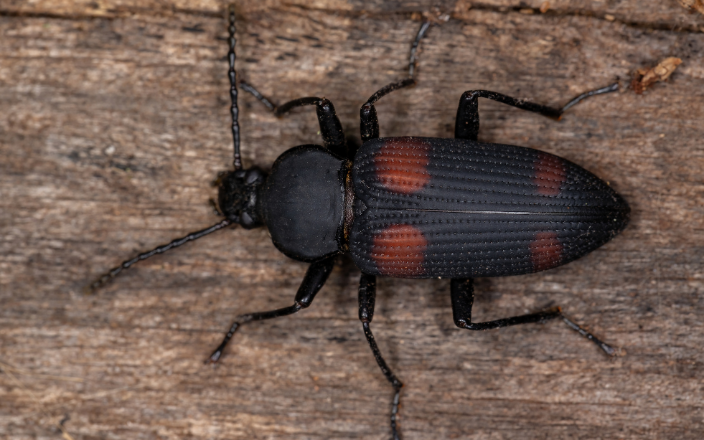Tenebrionid beetles, commonly known as darkling beetles, belong to the family Tenebrionidae. These beetles are found worldwide and are known for their adaptability to various environments, including agricultural settings. While they are primarily scavengers, feeding on decaying organic matter, they can also pose significant challenges in avian pathology.
Impact on poultry health
In poultry farms, Tenebrionid beetles can become a nuisance due to their presence in feed and litter. They are attracted to the nutrient-rich environment of poultry houses, where they can thrive and reproduce rapidly. The beetles can contaminate feed with their feces and body parts, leading to potential health risks for birds. Additionally, they can serve as vectors for various pathogens, including bacteria, viruses, and parasites, which can cause diseases in poultry.
Disease transmission
One of the primary concerns with Tenebrionid beetles in avian pathology is their role in disease transmission. These beetles can harbor and spread pathogens such as Salmonella, Escherichia coli, and Clostridium perfringens. When birds ingest contaminated feed or come into contact with infected litter, they can develop gastrointestinal infections, leading to symptoms like diarrhea, reduced growth rates, and increased mortality. The presence of these pathogens can also compromise the overall biosecurity of poultry farms.
Control measures
Effective control of Tenebrionid beetles in poultry farms is essential to minimize their impact on bird health. Integrated pest management (IPM) strategies can be employed to reduce beetle populations. These strategies include maintaining proper sanitation, regularly cleaning and disinfecting poultry houses, and using insecticides judiciously. Additionally, monitoring beetle populations and implementing preventive measures, such as sealing cracks and crevices where beetles can hide, can help in controlling their numbers.
Research and future directions
Ongoing research is crucial to better understand the biology and behavior of Tenebrionid beetles in poultry environments. Studies focusing on their life cycle, feeding habits, and interactions with pathogens can provide valuable insights for developing more effective control methods. Furthermore, exploring alternative approaches, such as biological control using natural predators or environmentally friendly insecticides, can contribute to sustainable pest management in poultry farms.
Conclusion
Tenebrionid beetles pose a significant challenge in avian pathology due to their ability to contaminate feed and transmit diseases. Implementing effective control measures and conducting further research are essential steps to mitigate their impact on poultry health. By addressing these issues, poultry farmers can ensure the well-being of their birds and maintain the productivity of their farms.
Sources: Available upon request

